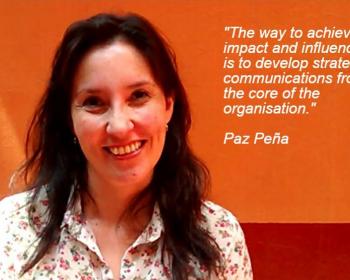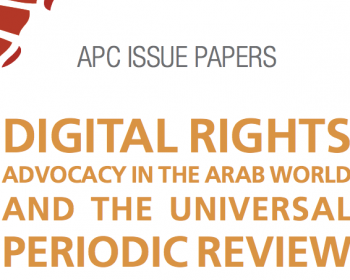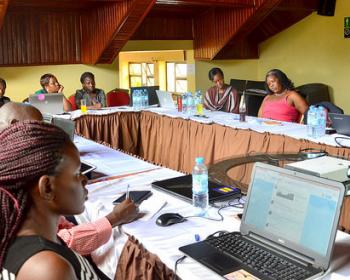Strategic use of the internet
In an effort to develop appropriate strategies for digital inclusion of women in northern Nigeria, CITAD undertook pilot research to understand the factors that inhibit the effective use of the internet by women in the region, with the support of an APC subgrant.
_“In this age, when the mass media rest in fewer and fewer hands, we must have strong, vital, independent voices if we ever want to hear all the stories or seek justice.
In a changing environment with tremendous competition among messages, how can we ensure that our communications have maximum impact? APCNews talked to Paz Peña, a Chilean journalist and social communicator who has been working on digital rights issues for the past eight years.
During the “Arab Spring” of 2011, the internet was a space for mobilisation. Despite the increasing sophistication of persecution, the efforts to defend human rights, both online and offline, have not ceased.
This report explores how local groups in the Maghreb and Machrek regions are engaged in internet-related rights advocacy at the national and regional levels, and how that reflects upon the inclusion of these issues in the Universal Periodic Review (UPR) process.
Credited with introducing the blogging culture to Iran, Derakhshan spent six years isolated from the web he had contributed to building. When he went back to the internet, what he found was appalling.
At APC, awareness of climate change and its relationship with information and communications technologies (ICTs) has been an integral part of our work since we were born, in 1990.
We are re-launching the Betinho Communications Prize, which will go to the most significant contribution in using the internet for social justice and development. And we are doing it at a very symbolic time for APC.
Ali Rana was among ten participants selected for the Internet Rights are Human Rights (IRHR) workshop held with human rights defenders, women’s rights defenders, journalists and members of academia, as part of the project Advocacy for Change through Technology in India, Malaysia and Pakistan (IMPACT). The project is using the Internet Rights are Human Rights curriculum to provide human rights...
Since early 2015, the Local Action to Secure Internet Rights (LASIR) project has focused on empowering national and local actors in their defence of human rights on the internet, in countries as diverse as South Korea, Brazil, the Philippines, India, Jordan, Uganda, Bosnia and Herzegovina, Bangladesh, Kenya and Tunisia.

Association for Progressive Communications (APC) 2022
Unless otherwise stated, content on the APC website is licensed under Creative Commons Attribution 4.0 International (CC BY 4.0)








